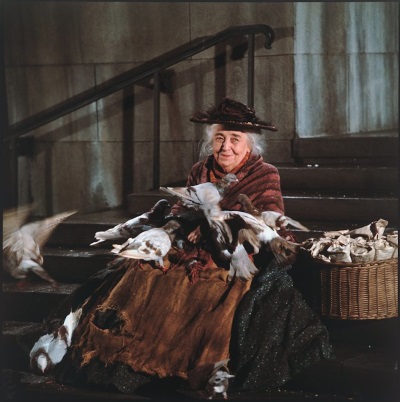A few weeks ago, my dear friend Ben Binkley suggested that if I wanted to get to know Jesus by reading the Gospels, I should start with Luke, since it’s one of the easiest to read. My Bible-reading skills are admittedly lacking, so I figured it was good advice. And for the most part, Luke is easy to read. He writes about Jesus’s life like he’s jotting down the manuscript of a press briefing— no unnecessary fluff.
I just would have appreciated a little fluff when I got to Chapter 5, verses 36-39: He told them this parable: “No one tears a piece out of a new garment to patch an old one. Otherwise, they will have torn the new garment, and the patch from the new will not match the old. And no one pours new wine into old wineskins. Otherwise, the new wine will burst the skins; the wine will run out and the wineskins will be ruined. No, new wine must be poured into new wineskins. And no one after drinking old wine wants the new, for they say, ‘The old is better.’ ”
My appreciation for Luke’s approach to writing was gone almost as soon as it started. Where did wine come from? I thought, rereading the tiny passage at least three times, trying to will my sleepy brain into figuring out what on earth it actually meant. I didn’t succeed. The wine is… the Pharisees. No, the disciples. Uh, the wine is… not… really… wine. Jesus is hosting a party? Who keeps wine in a skin?
“This makes literally no sense to me,” I finally concluded, snapping my Bible shut, only dimly aware of what lame use I’d made of the word “literally.” So much for getting to know Jesus.
But later that day, I sat on my bed listening to a playlist of Disney show tunes, and it eventually landed on “Feed the Birds” from Mary Poppins. Julie Andrews’ angelic voice came softly through my speakers, singing lines so familiar I’ve known them by heart for years:
Though her words are simple and few
Listen, listen; she’s calling to you
Feed the birds, tuppence a bag…
And before I knew it, two fat tears were making their way slowly but surely down my cheeks.
Maybe it’s absurd to be convicted by the words of a fictional nanny. But somewhere in those lyrics, it seemed I was hearing a bit of Jesus.
Jesus’s words— at least the ones we get to read— often seem simple and few, like the bird lady’s. Too simple and few. They’re confusing. Sometimes, they’re weird. And I want so many more of them than the ones Matthew, Mark, Luke, and John stuck us with.
But despite that, so often Jesus just says to me— to all of us— feed the birds.
In its simplest, purest form, that’s His message. Listen, He says, I’m calling you. Feed them (Mark 6.37): the ones with no food and the ones who seem like they have it all. The ones who are the hardest to love— oh, you feed them too.
Love them.
That was what Jesus was best at - more than the preaching, more than the parables, even more than the miracles. Love is Jesus’ great gift (John 13.34-35, 15.13). I don’t know what He was thinking all the time, and I don’t know what His disciples were thinking of Him, or why Luke couldn’t have at least explained the wine metaphor to the benefit of one prone-to-overthinking English major, but I do know one thing: Jesus’s message was one of love. Jesus fed the birds.
And I know that Jesus didn’t sing like Julie Andrews (much to the disciples’ chagrin, probably). And that maybe it’s a tad sacrilegious to compare the Messiah Himself to a Disney character. But when there are days that my Bible seems too big and too confusing to bear, those days when I am tempted to drop it out of a window or else quietly shove it under a pile of socks where I don’t even have to try to comprehend it, I’ll try to remember the day I found Jesus in the Mary Poppins soundtrack.
I’ll try to remember that Jesus is calling me anyway. I’ll try to listen. And I’ll try to do the startlingly ordinary task He’s asking of me: just feed the birds.
- Jayne Ross


